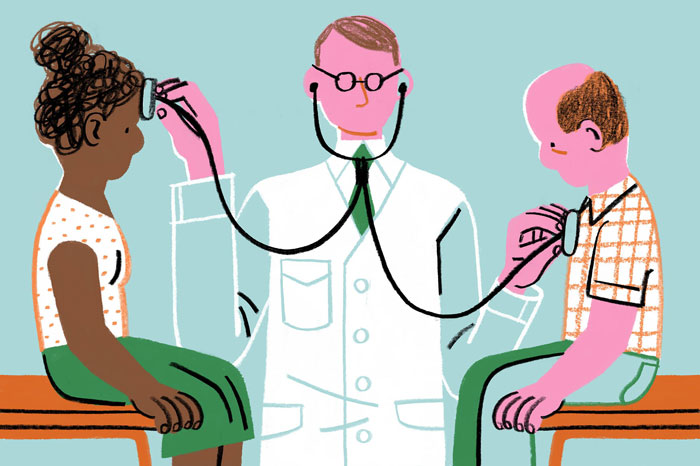You cannot think of a sphere in life where gaslighting wouldn’t be possible. As you remember, gaslighting is a kind of manipulation when one person makes the other doubt their perception of reality. When applied to medicine, medical gaslighting means that a person’s health issues are treated negligently, maybe even denied. This type of dismissive treatment can be done so skillfully that the victim will realize what has been happening only a long while later. Meanwhile, ignoring possible health problems could become a very grave issue and lead to dire consequences. It’s advisable to be aware if you are subjected to medical gaslighting – run through this information to make sure you are in the know.
How can one recognize gaslighting?
It’s quite a problem to be aware of being gaslighted. One ought to recognize when it is done purposefully and willfully. This can be done by the common signals listed below.
Watch the behavior of your provider. Do they stop you abruptly, not giving you the opportunity to explain your condition fully? Do they hear you out?
The provider asks questions about how you feel, but you understand that they treat your symptoms too lightly, playing them down.
Maybe the provider even tells you that you won’t be talking about the symptoms.
Does the provider suggest undergoing lab analyses to ascertain the diagnosis or omit it?
Is the provider empathetic or, on the contrary, reserved, inattentive, or distant?
Do they tell you that your symptoms are caused by a mental problem without identifying the problem or asking you to check with a mental specialist?
Is there something you can do to ensure a decent treatment?
Start registering your feelings and symptoms
When you have a written record of your manifestations, you have strong evidence to present to your therapist. A logbook of your symptoms, when they sprang up, how long they lasted, and how severe they were, will make an impressive reading difficult to disprove. Also, it is useful to put down what treatment helped you and what failed. If your provider seems dismissive, they will find it hard to discount your careful records!
You can even make jottings during your appointment with the therapist/specialist and see whether the conversation begs questions. You may not be feeling well then; it will help you not to lose track of something important, remind you later of what you told and were told, and make sure of how carefully you were listened to.
Besides, you can put your record to various collateral uses: if the provider waves away a symptom, you can ask them to make a note of it in your logbook and assert their opinion in writing.
Question everything in detail
Actually, you can put a lot of questions. Before you appointment, think of things you want to know; write them on a sheet of paper or in your journal. Some questions may be enlarged later after you have gotten answers. When in doubt, nothing hinders you from asking the doctor, “what else do you think I should know about my state?” or “what questions do you think I omitted to ask?”.
Accentuate the most worrying concern
Your provider may not have a lot of time to spare; in 2021 there was a study allotting a period of 18 minutes for the average primary care examination. If so, arrive well-prepared with your principal points written down together with the information you want to obtain. This will make your appointment as productive as it can be!
Arrive accompanied for a better understanding
See if it is acceptable to take along a partner, a relative or a friend if the appointment is expected to be determinative. They can think of a question you bypassed or hear some information that escaped your attention. They can express disbelief or ask for clarification if the therapist falsely blames overweight or stress in their troubles. They are more likely to notice if your concerns have not been treated with due respect.
In case the doctor objects to their presence, ask whether they can listen in to the discussion on the phone, it may provide even better conditions for your friend or family member.
Consult someone else

If you don’t feel sure you can always go for another professional opinion, why not a third one? You need to know that you trust the person you have dealings with, especially if the dealings are of so serious a nature. If doubtful, look for a therapist who is attentive and serious, and on whose information you can rely.
Be mindful of your gut feelings
Doctors have heaps of necessary knowledge, but you know yourself better. You may like to hear that everything is all right with you, but if your sensations belie this statement, on the consideration you may want to switch on to another specialist.
Bring your concerns to medical authorities
In hospitals, there is the patient advocacy staff that can be approached with questions about treatment. Your provider has to have a supervisor who you can address if there is a problem.
When your problems get too big and of great import, your worries can be delegated to the Federation of State Medical Boards.
Gaslighting on par with other kinds of manipulation, delays with diagnosing, and rudeness are all reportable. Doctors know that they may have to give account for their behavior and treatment methods.











